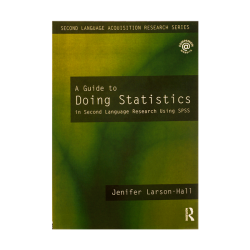Scientists investigate cases of post-Covid-19 fatigue
Most people experience Covid-19 as a short-term illness – once the infection has been fought off, they bounce back to health. But evidence is emerging of a significant minority – sometimes referred to as “long haulers” – who struggle with long-term symptoms for a month or longer.
Anecdotal reports have abounded of people left with fatigue, aching muscles and difficulty concentrating. Online support groups on Facebook and Slack have sprung up, already hosting thousands of members who say they have not got better.
Speaking to the BBC’s Andrew Marr Show on Sunday, Matt Hancock said it was difficult to gauge the scale of the problem. “This is a really serious problem for a minority of people who have Covid,” the health secretary said. “Some people have long term effects that look like a post viral fatigue syndrome.”
Scientists are only just beginning to investigate the potential causes of enduring fatigue, but say that there are likely to be a wide variety of reasons why some people face a longer road to recovery.
“Fatigue itself will take on lots of different guises,” said Chris Brightling, professor of respiratory medicine at the University of Leicester, who is leading a newly announced £8.4m study into the long-term health impacts of Covid-19.
A report published in February by the World Health Organization, based on preliminary data, suggested that, in mild cases, the median recovery time from Covid-19 is roughly two weeks from the onset of symptoms, and about three to six weeks for severe or critical cases. However, some of those who appear to have only mild illness initially also end up wrestling with symptoms, including fatigue, that linger for weeks or months.
Those who have suffered severe illness in the acute phase, including admission to intensive care, typically suffer from muscle loss, which can result in direct physical fatigue. Others are left with lung damage, including scarring that can cause breathlessness, leaving people feeling tired. There are other physical effects that are less clearly understood – the disease is known to cause blood clots in the lungs and other parts of the body – and neurological symptoms ranging from stroke to mood disorders such as anxiety and depression.
“How common each of those things are we simply don’t have good information,” said Brightling.
There is previous evidence linking Chronic Fatigue Syndrome (CFS) to infectious outbreaks, including Epstein-Barr virus and Q fever. A study of people infected during the 2003 Sars outbreak revealed that almost a third had a reduced tolerance to exercise many months later, despite having normal lung function.
Brightling’s study will track around 10,000 patients who were admitted to hospital with Covid-19. This will allow scientists to assess what proportion of patients end up with which long-term health impacts, and what the risk factors are for different symptoms. This could help pave the way to better treatments and medical support for those who are left struggling months after initially becoming ill.
Figuring out how Covid-19 triggers fatigue symptoms could also offer new insights into some of the ways that chronic fatigue can occur more generally. “One of the big challenges is that there’s so much that we don’t yet understand,” said Brightling. “People who specialise in fatigue are seeing people with multiple reasons why they’ve ended up at that point.”
In this case, he said, because the trigger for fatigue is known, there is a better chance of understanding what is happening in the body. “It gives you a way of trying to unravel that puzzle,” said Brightling.




